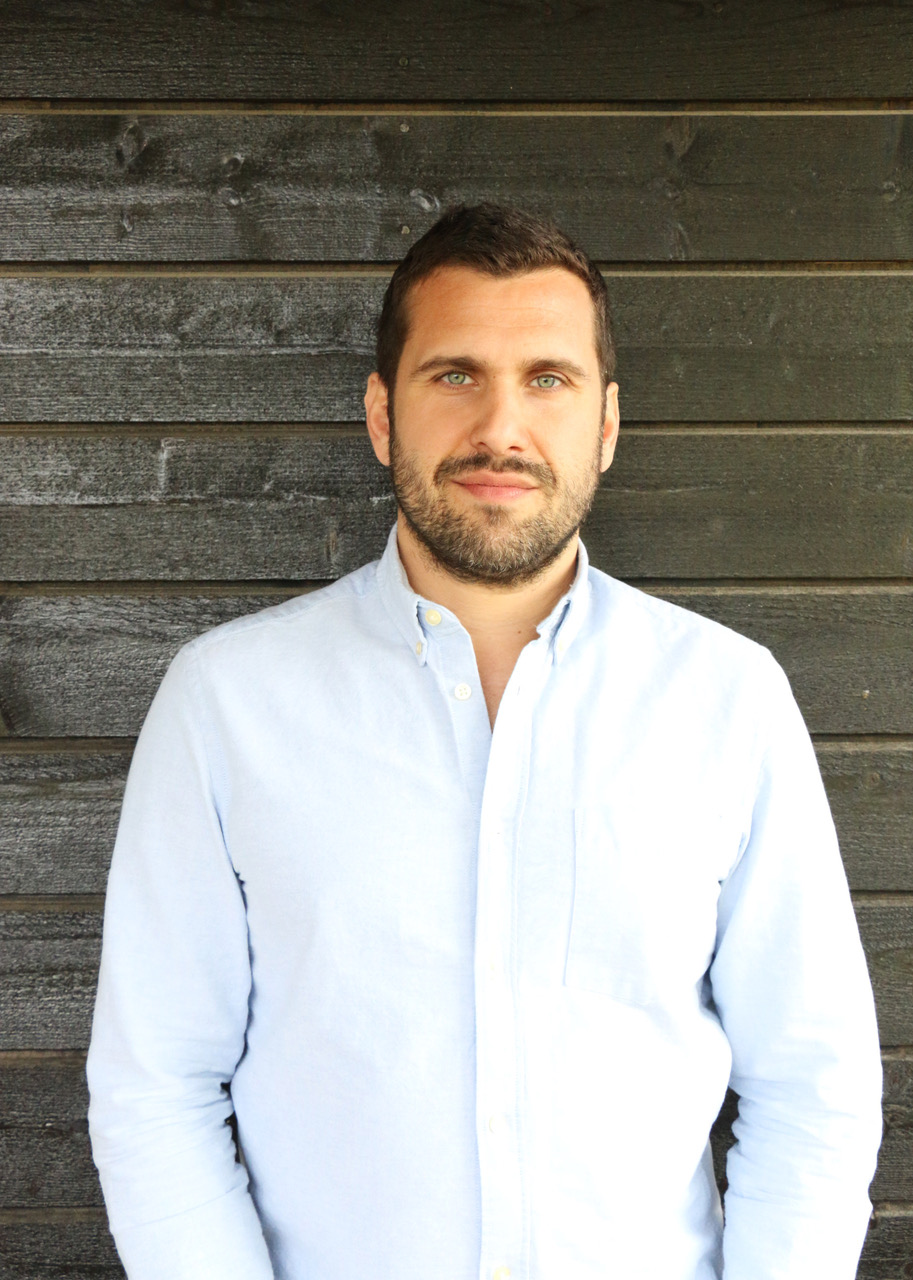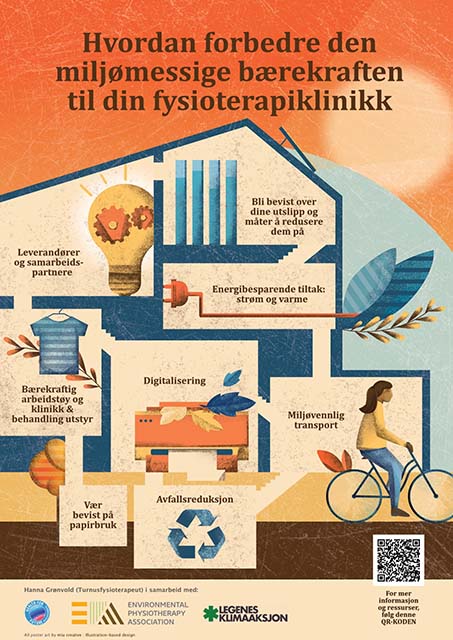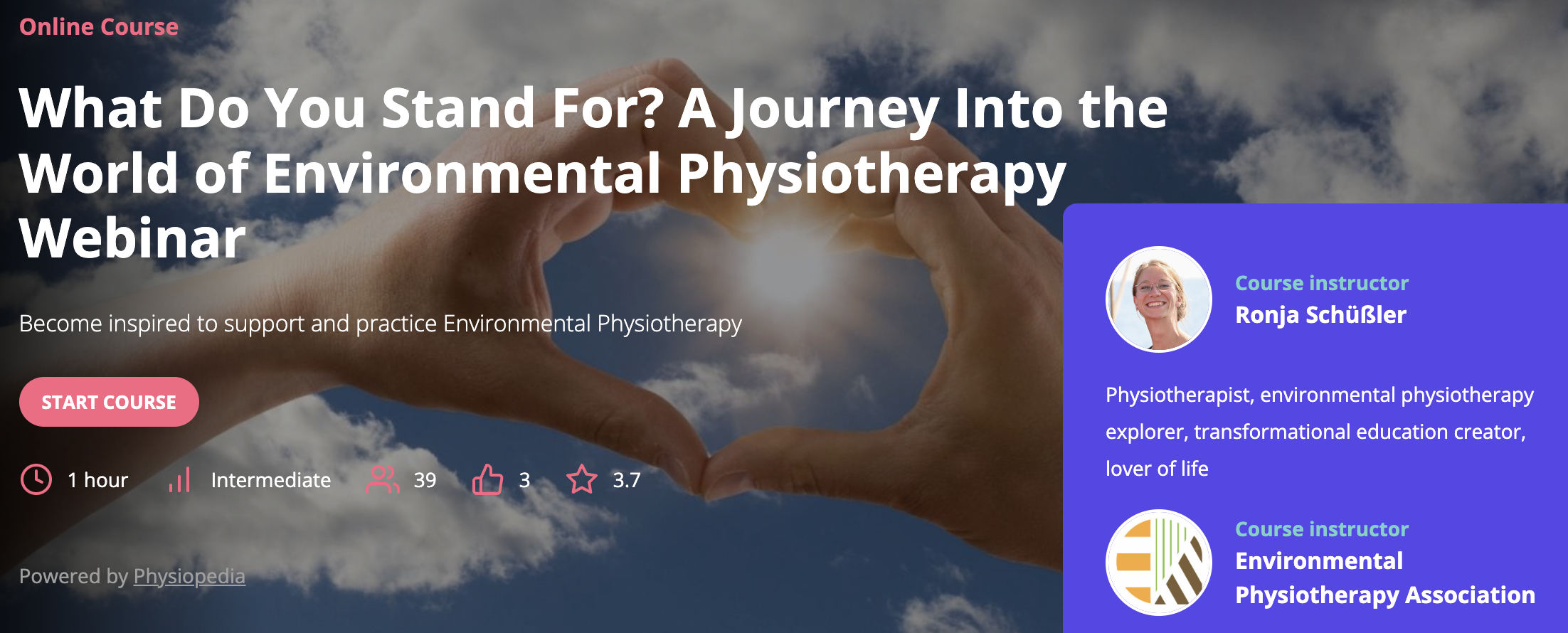For the fourth year in a row, toward the end of November each year since the launch of the EPA, we have hosted an environmental physiotherapy roundtable – an opportunity to come together amongst different groups of colleagues to share our thoughts and discuss and develop different dimensions of environmental physiotherapy. This year’s roundtable was once again linked to the EPT Agenda 2023, our large international education initiative working for the integration of planetary health, environmental and sustainability education into physiotherapy training around the world.
Students have been a driving force in all environmental physiotherapy efforts from the very start and so this time around, it was a special pleasure to invite a total of 15 students from a total of 7 countries to present the research projects that they have worked on as past and previous Bachelor students (in order of appearance):
Mila Plaisant (HFU Furtwangen University, Germany) A discourse analysis of the concept of sustainability in physiotherapy
Linya Chi (University of South Australia) Exploring Australian physiotherapists’ views and practice about climate change and its effects on health
Isabel Cooksey (University of Winchester, UK) How MSK PTs use and interact with environments during patient interactions
Alexander Popp (HFU Furtwangen University, Germany) Effects of the climate crisis on patients with COPD
Kyan Rytzell (Saxion University of Applied Sciences, Netherlands) A walking-based program to address the physical, mental and social aspects of LBP: A single-case study

Filip Maric (PhD)
A/Prof, EPA Founder & Executive Chair
Filip Maric is Associate professor at UiT The Arctic University of Norway, and founder of the Environmental Physiotherapy Association. He is interested in the outer rims of healthcare and critical physiotherapy, philosophy, #EnviroPT, environmental post/humanities, planetary health and sea kayaking.
Simoné van der Linde, Su-Ané Rocher & Lucy Wu (University of Pretoria, South Africa) South African healthcare professional’s perceptions and practices in environmental sustainability
Jana Zisowsky and Lea Hagemeier (Hochschule Osnabrück, Germany) A policy brief on planetary health and occupational therapy
Hanna Grønvold (UiT The Arctic University of Norway) Improving the environmental sustainability of Norwegian physiotherapy clinics
Charles Senay (Satakunta University of Applied Sciences, Finland) The health effects of forests and how to benefit from these in physiotherapy practice
Asgeir Andreassen Bergli & Sara Pedersen (UiT The Arctic University of Norway) How well does Tromsø facilitate cycling as a form of active transport: An urban design research study
Ronja Schüssler (Hochschule Osnabrück, Germany) Planetary health education with head, heart, and hands
Environmental Physiotherapy Roundtable 4 – The potential of student research (session 1)
Environmental Physiotherapy Roundtable 4 – The potential of student research (session 2)
Whether already completed or ongoing, the work of these students is an incredible showcase of the potential of student research as a tool for environmental physiotherapy education, but far beyond that, also for the development of physiotherapy in general and environmental physiotherapy more specifically in our case. In my experience, student research is often misunderstood, misperceived and ‘mispracticed’ as a kind of litmus test in physiotherapy education. The final hoop to get through, to get your stamp of approval but sadly a hoop whose content ends up being forgotten and so wasted in relation to the contribution it could have made.
In the case of almost all presentations of yesterday’s two roundtable sessions, the students that have or are working on these projects have either already published journal articles, blogposts, policy briefs, physiopedia pages, created online courses, or are working up to this, and this often after having completed their study, out of their passion for environmental physiotherapy, planetary health and sustainability. I’m never 100% certain of the extent to which working on a Bachelor’s project is a valuable learning experience that really gives them something. I sure try to work toward this goal. But I am 100% certain of the fact that these students are contributing something to the development of our profession, in this case, to the development of environmental physiotherapy, planetary health and related fields, and for that I am grateful.
Here’s just a few things that some of the presenters from this year’s roundtables have actively contributed:
Plaisant, M. (2022) A discourse analysis of the concept of sustainability in physiotherapy. Platform presentation at the 6th Research Symposium of the German Society of Physiotherapy Science (DGPTW). Furtwangen, Germany.

Lister, H. E., Mostert, K., Botha, T., Van Der Linde, S., Van Wyk, E., Rocher, S.-A., Laing, R., Wu, L., Müller, S., Des Tombe, A., Kganyago, T., Zwane, N., Mphogo, B., & Maric, F. (2022). South African Healthcare Professionals’ Knowledge, Attitudes, and Practices Regarding Environmental Sustainability in Healthcare: A Mixed-Methods Study. International Journal of Environmental Research and Public Health, 19(16), 10121. https://doi.org/10.3390/ijerph191610121

Grønvold, H. (2022). Hvordan forbedre den miljømessige bærekraften til din fysioterapiklinikk. Environmental Physiotherapy Association.
Norwegian EPIC poster available for download here: https://environmentalphysio.com/practice/ alongside extensive background information (in Norwegian) here: https://environmentalphysio.com/practice/hvordan-forbedre-den-miljomessige-baerekraften-til-din-fysioterapiklinikk/
Schüssler, R. (2022). What Do You Stand For? A Journey Into the World of Environmental Physiotherapy Webinar. https://members.physio-pedia.com/learn/what-do-you-stand-for-a-journey-into-the-world-of-environmental-physiotherapy-webinar/

There’s more coming soon and more where this came from everywhere around the world, and it will help physiotherapy become more environmentally aware and responsible for a long time to come, just so long as we support good (environmental physiotherapy) student research.
#EnviroPT 🌎🌍🌏🚑


Dear all,
as a new member of EPT 2023 I was very happy to being able to join yesterday’s round table. Thank you very much for all your inspiring work. Looking forward to further work in #EnviroPT!
Hi, could one access there student papers to read?
Dear Roxan,
you would have to contact the students individually to check with them. We can’t provide this access from within the EPA.
Best regards,
Filip